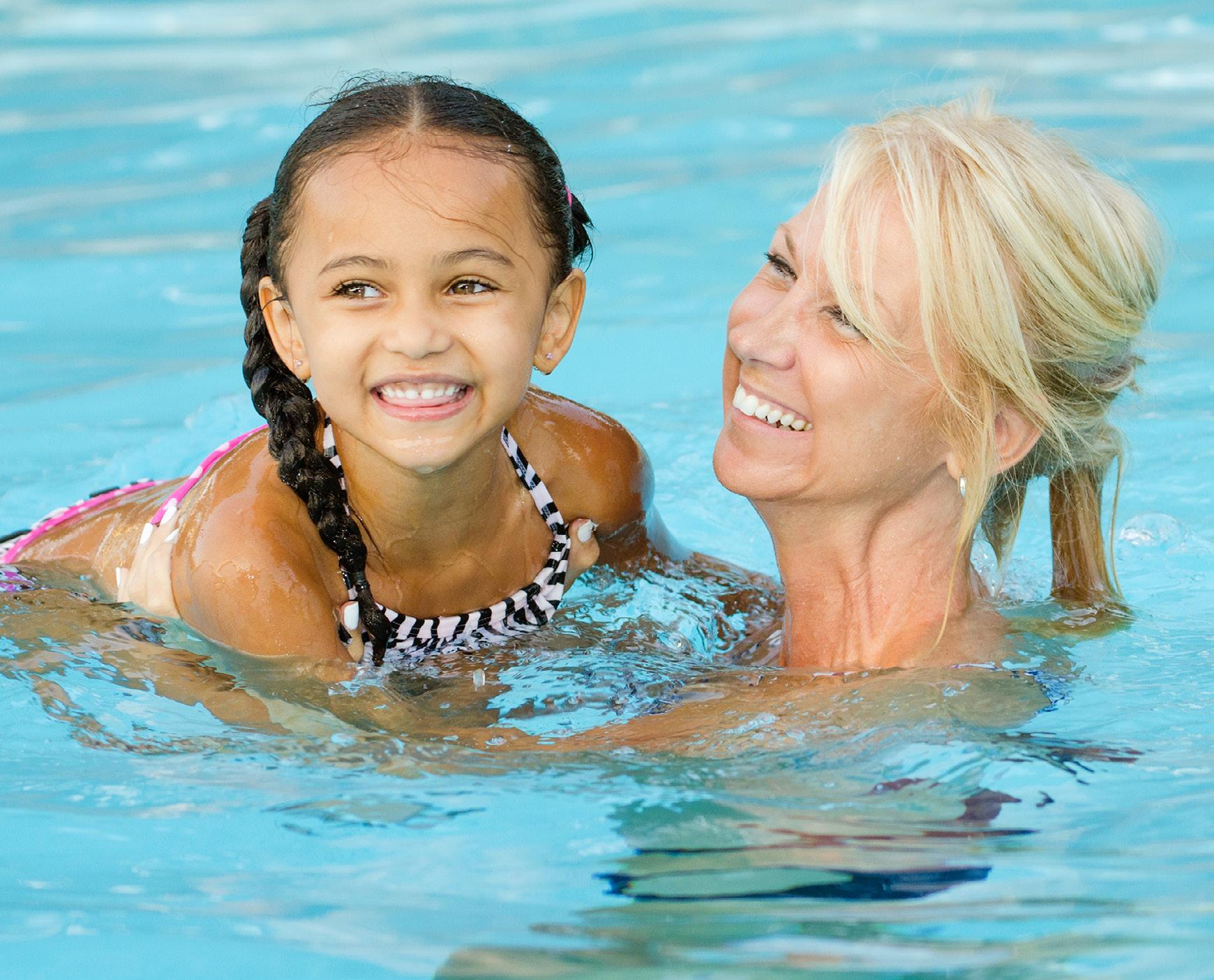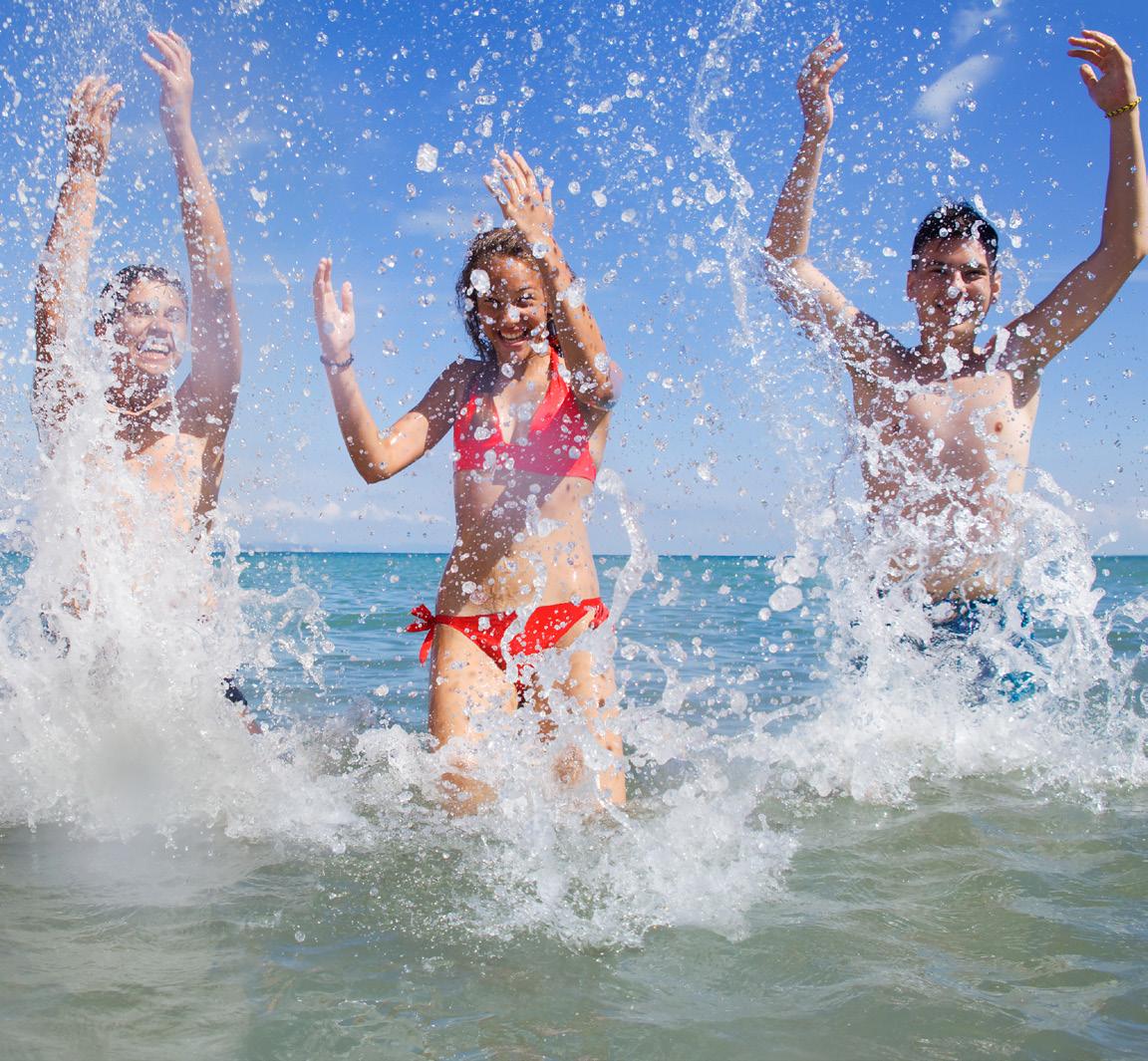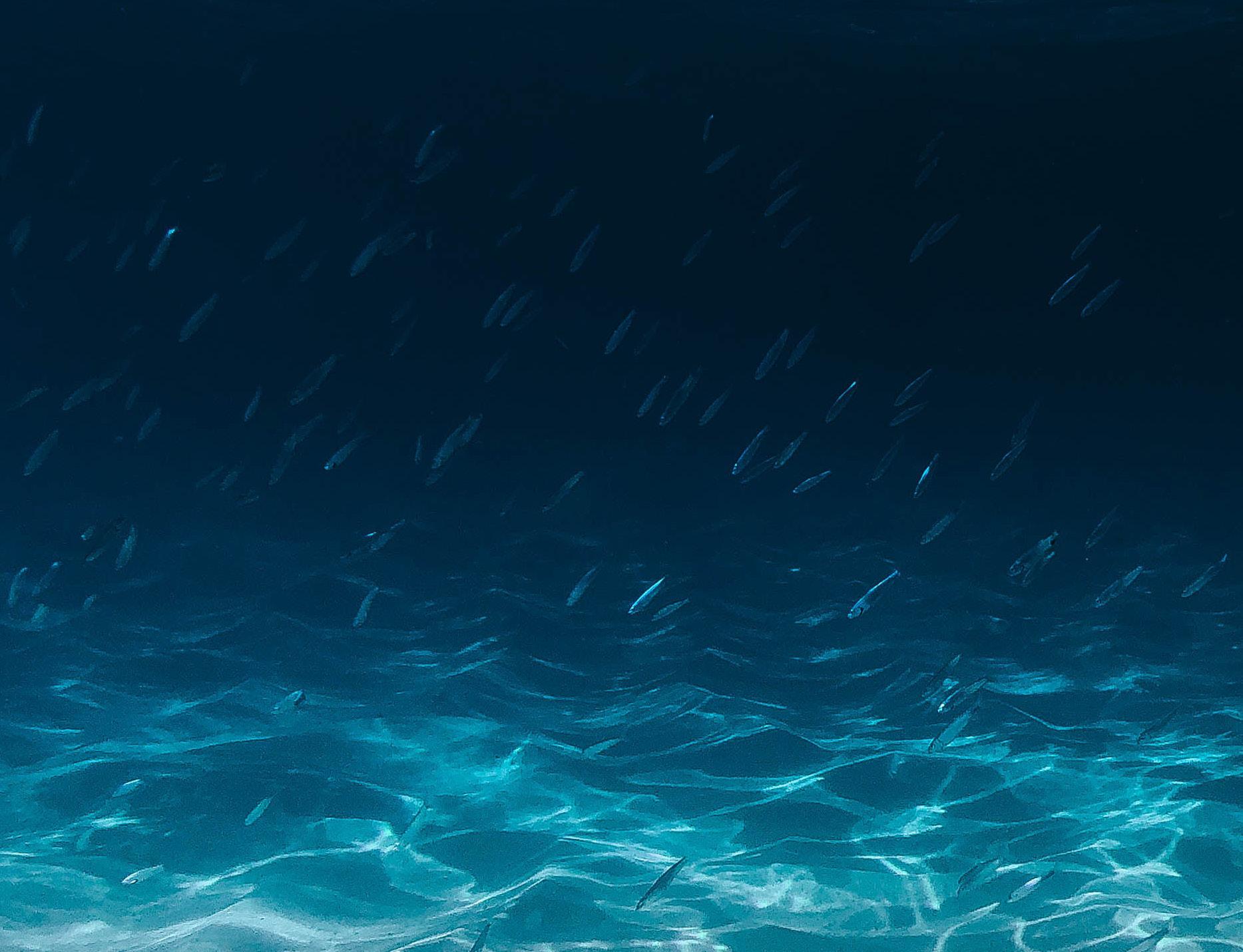


Royal Life Saving Society UK
WATER SAFETY INSIGHT REPORT 2022
Every year, across different water safety campaigns, claims are made about the associated risks of being in, on or around water. Whilst these claims are often relevant, at Royal Life Saving Society UK (RLSS UK), we believe there is a need to further explore the circumstances, perceptions and behaviours leading up to accidental drowning incidents, so we can better inform and educate the public, increasing the opportunity for everyone to enjoy water safely.
We started this exploration earlier in the year, with research amongst a nationally representative sample of UK adults, to help us assess current perceptions of water safety and behaviours around water.
Then, during RLSS UK’s Drowning Prevention Week this year, we aimed to create data-led messaging based on real cases of accidentally drowning, to challenge some of the established thinking around in this area and around what it takes to stay safe in, on and around water.
 Lee Heard , Charity Director
Lee Heard , Charity Director

OUR GOAL was to open-up new dialogues that would resonate across both our current and new audiences, as well as further highlight the importance of everyone receiving high-quality water safety education
AT RLSS UK, we know how vital it is to follow the water safety code to ensure your safety in, on and around the water. To assess current behaviours, we asked people what they did the last time they visited a water site.
THE WATER SAFETY CODE STATES THAT PEOPLE SHOULD: THE WATER SAFETY CODE STATES THAT PEOPLE SHOULD:
STAY Together
• When around water always go with friends or family.
• Swim at a lifeguarded venue.
1/3 ONLY 1/3
of adults stayed with others whilst in and around water
last time they visited a water site.
Only 18% actively chose a Lifeguarded venue.
In this publication, we aim to challenge some of the perceptions that were evident in our research and show the importance of high-quality water safety education to keep people safe in, on and around water.

- 3 -
HOW IMPORTANT is it that I visit a lifeguarded water site?
Royal Life Saving Society UK (RLSS UK) always recommends seeking out lifeguarded venues to help you and your family enjoy water safely.
In our analysis of 240 UK cases of accidental drowning, we saw that 73% of fatalities occurred in the absence of professional supervision, such as an RLSS UK qualified lifeguard.
We know that professional supervision plays a key role in keeping people safe: Qualified Pool Lifeguards are able to intervene if they spot unsafe behaviour or someone at risk of drowning. RLSS UK qualified lifeguards perform over 15,000 rescues a year helping to make swimming pools a safe place to swim.
Just 1% of all UK accidental drownings occur in swimming pools 1 .
73%
You can find lifeguarded venues via the links below:
• Outdoor swimming venues
• Aqua Parks
• Beaches
But I can swim, so I’M SAFE … AREN’T I? in, on and around water
Swimming is a vital skill and has been seen to positively contribute to both an individual’s physical and mental wellbeing2. Swimming is also often considered essential to staying safe in, on and around water.
At RLSS UK we know that keeping safe in all water environments requires additional knowledge and skills.
Through our research, we have seen that only around a third of UK adults have ever had any formal water safety education or training, and even fewer have received training in the last 5 years.
RLSS UK recommends that everyone has regular water safety education or training, especially when planning to visit water or participate in water-based activities. This will help ensure that we are prepared for all different water environments and have the knowledge to self-rescue in a range of different situations.
of fatalities occurred in the absence of professional supervision demonstrating that being able to swim alone isn’t a guarantee of being able to stay safe in all types of water.
Through our analysis of 240 cases of accidental drowning fatalities, we’ve seen that of those who lost their life were swimmers,
49%
- 4 -
What about my children, they can swim. ARE THEY SAFE?
Parents of children who have swimming lessons are more confident that their child knows how to stay safe in and around water. We’ve already recognised that swimming is vital, but are we right to assume that a child being able to swim is enough to prevent them from accidentally drowning?
Through the analysis of the accidental drowning of 168 children and young people aged 18 and under, we found that 35% were described by friends and family as being able to swim. What’s more, if we focus on those who were aged between 8 and 18 when they lost their life, 61% were swimmers.
What can we learn about these accidental drownings to help us understand why swimming alone might not be enough?
LOCATION Across the UK and Ireland children are predominantly taught to swim in a heated indoor swimming pool offering professional supervision, yet more than 3 in 5 accidental drownings amongst children aged 8 and over occurred in outdoor water, such as lakes, quarries, reservoirs, rivers, canals, lochs, and the sea, with pool drownings less common, relative to those aged 7 and under. These outdoor water sites pose different challenges for everyone, including swimmers, such as reduced water temperature, increased depth, and lack of supervision.
3 in 5
accidental drownings amongst children aged 8+ ocurred in outdoor water vs.
ACTIVITIES In over a half of cases we analysed, children aged 8-18 were playing water sports or participating in recreation on the water (rather than swimming) at the time of drowning. Perhaps those who can swim are more likely to over-estimate their ability to keep safe. We know that being able to demonstrate the right behaviours when participating in activities on the water is essential.
To help children achieve this goal, it is vital that they have access to high-quality water safety education to ensure they have the specific skills and knowledge required.
- 5 -
At Royal Life Saving Society UK, it is our mission to help more people enjoy water safely.
Do my children learn about water safety at school?

More than 9 in 10 parents think it is important that children are taught about water safety in schools, however formal, class-based water safety lessons aren’t currently part of school curriculums across the UK and Ireland. As such, in our survey, we saw that only 1 in 5 children have had formal water safety education at school in the last 12 months.
Access to quality swimming tuition by the time children leave primary school is vital. However, in England there is great variation in the accessibility, quality, consistency, and evaluation of the current intended outcomes for school water safety and swimming between schools.
IN ENGLAND, it is currently a statutory requirement for schools to deliver the following three national curriculum outcomes for swimming and water safety, to each pupil by the end of Key Stage 2 (age 11):
• Perform safe self-rescue in different water-based situations.
• Swim competently, confidently, and proficiently over a distance of at least 25 metres.
• Use a range of strokes effectively, for example, front crawl, backstroke, and breaststroke.
We believe that this would achieve equality for all young people, addressing many of the practical barriers that currently prevent many children from accessing pool-based lessons.
The Royal Life Saving Society UK believes that to prepare our children to enjoy the water and reduce their possibility of accidentally drowning, class-based water education should be included on every curriculum across the UK and Ireland.
According to Sport England’s Active Lives Survey (2021) only 34% of children and young people with a low family affluence score can swim 25 metres unaided, compared to 77% of those with a high family affluence score.3
Can I teach my children how to stay safe ?
In our survey of UK parents, 89% felt that it’s important their family has basic knowledge of how to stay safe in the water and self-rescue. However, only 23% had any formal training or education in the last 5 years and 57% have never received any formal water safety training or education themselves.
So, we’re asking parents: would you feel confident to equip your children with the knowledge and skills required to keep them safe in, on and around water?
We’re urging parents to access our free water safety resources to help ensure you and your children can learn these critical skills. The Royal Life Saving Society UK provides high quality, water safety education. Visit the Royal Life Saving Society UK website for more information.

23%
of UK parents we surveyed had any formal training or education in the last 5 years
57% of parents have never received any formal water safety training or education themselves.
- 7 -
ONLY
The Sports England Active Lives Survey recorded that 408,000 people regularly took part in open water swimming in 20/214. Physical benefits are noted to include better sleep and a boosted immune system, whilst emotionally outdoor swimming is said to improve your mood, helping you feel happier.5

In the UK, inland waters can be as low as
in winter to as high as the mid 20℃ in peak summer. Coastal waters vary from low single digits to the high teens7
Google searches for ‘open water swimming’ reached a five-year high in July 20216, yet with an increase in outdoor swimming activities comes an increased risk of exposure to cold water. Water temperature has a significant impact on a person’s ability to swim and for how long they can safely stay in the water.
In April 2022, we heard reports of a healthy 39 mother-of-three who tragically died suddenly at a cold-water therapy camp after being immersed in the water8
- 8 -
When the weather is warm, it can be tempting to take a dip outside, “we’ve swam there before, so that’s safe, right?”
0℃
In the analysis of 133 accidental drownings in outdoor spaces (including lakes, quarries, reservoirs, rivers, locks, canals, ponds and the sea),
We have seen that more than twice as many people who drowned suffered cold water shock in a lake, quarry or reservoir, compared to other outdoor sites.

This is generally because lake, quarry and reservoir environments tend to be deeper and colder than other outdoor water sites, such as rivers and ponds.
The Royal Life Saving Society UK always advises to enter cold-water slowly. In 51 cases of UK accidental drowning citing cold water shock, 71% had entered the water suddenly via a jump or unexpected fall.
This fits with what we know about cold-water shock and how it impacts the body in the early stages of immersion. Even the initial gasp for breath when you enter cold water can be enough to fill your lungs with enough water to cause you to drown. Never assume that because you can swim you will be able to manage the demands of swimming in outdoor water.
In our analysis, we saw that 78%
and it is a fair to assume that for those that have learnt to swim solely in a swimming pool, that their ability to swim in cold water is much less when swimming outdoors.
If you’re considering open water swimming, acclimatising to cold water is an important step in enjoying a safe swim. Take a look at our guidance with our Sponge to Plunge Plan.
- 9 -
of those drowning from cold-water shock were swimmers
So, how dangerous is cold water immersion and how can we minimise the risk?
cold water shock was cited as a cause of death in almost 2 in 5 (38%) of cases.
More about the Royal Life Saving Society UK
For over 130 years Royal Life Saving Society UK (RLSS UK) have been focused on reducing the number of lives lost to accidental drowning. Our mission is to be the leader in lifesaving and lifeguarding in the UK and Ireland; sharing our experience and knowledge with as many people as possible, giving everyone the potential to save lives and enjoy water safely.
We have used our extensive, world-leading knowledge of water safety and training to develop a comprehensive range of vocational qualifications and a series of awards and education programmes which all aim to prevent drowning and stop the unnecessary loss of life. Our portfolio includes the National Pool Lifeguard Qualification (NPLQ), the UK’s leading lifeguard training programme.
ABOUT OUR RESEARCH: Research among UK adults
In March 2022, we conducted a quantitative online survey amongst a nationally representative sample of n=561 UK adults aged 18-65.
UK Water Incident Research Hub (WIRH)
The Water Incident Research Hub (WIRH) aims to improve access to water incident data, aquatic safety, and research and published over 150 help pages and articles supporting aquatic safety professionals. It has archived over 300 case reports from over 2,500 public records relating to UK water incidents between 1995-2022.
You can access more details on the research, including the data here
ENDNOTES
1. National Water Safety Forum WAID Database (2017-2021)
2. Swim England, The Value of Swimming Report (2019)
Royal Life Saving Society UK and our incredible members, volunteers and supporters continue to teach children in our water safety programmes outside of school. Why not check out one of our local lifesaving clubs to add vital water safety knowledge and training to a child’s swimming skills. Learn more

3. Sport England Active Lives Children and Young People Survey Report (Academic year 2020-21)
4. Sports England Active Lives Adult Survey (November 2020/2021). Regularly defined as participated at least twice in the last 28 days.
5. Swim England, The health benefits of open water swimming (Health benefits of open water swimming | Swim England Open Water
6. Source: Google Trends August 2017-August 2022
7. Outdoor Swimmer, A guide to water temperature (May 2022)
8. Daily Mail Online, (26 April 2022) Mother-of-three, 39, DIES after plunging into river at cold water therapy camp | Daily Mail Online
- 10 -
In 2022 alone, our Drowning Prevention Week Campaign has helped educate more than 1.25m children in water safety.
RLSS UK, Red Hill House, 227 London Road, Worcestershire WR5 2JG W. rlss.org.uk | E. info@rlss.org.uk | T. 0300 3230 096 Registered Charity (England and Wales 1046060, Scotland SC037912). Private Limited by Guarantee Company (3033781). Fundraising Standards Board Member.



 Lee Heard , Charity Director
Lee Heard , Charity Director







